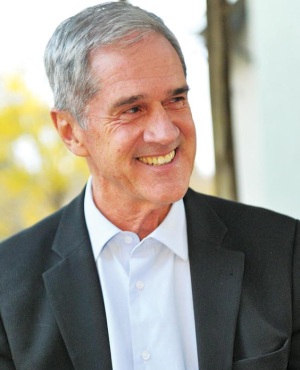
While it is unlikely that we will ever be able to completely get rid of the extremists among us, we have to make sure we marginalise them, says former Minister of Constitutional Development Roelf Meyer.
"I think the reason that farm murders are such an emotive issue is because it doesn't only affect individuals or families, but entire communities," he told News24 during an interview about the recent #BlackMonday protests to raise awareness about farm murders.
Pictures of people carrying the old national flag and racist banners sparked outrage on social media.
"People shouldn't underestimate emotion, and should have empathy for it. But, on the other hand, people should be careful not to encourage extremism. It is something that is on the increase around the world and it can lead to reactions such as what we've seen when some people showed up to the #BlackMonday protests," he said.
"In a country like South Africa, where there are still divisions along racial lines, extreme statements are dangerous and we should guard against it."
The issue of farm attacks and murders has been in the spotlight ever since Joubert Conradie was murdered on his farm outside Stellenbosch last week, sparking the nationwide #BlackMonday campaign.
The campaign has been criticised for presenting farm murders as more important than other types of crime and murder. Omri van Zyl, executive director of AgriSA, said it was unfortunate that a small minority had turned the campaign into an issue about race.
"It's unfortunate that people have made this a race thing. Farm attacks affect all farmers and farm communities in rural areas," he says.
"#BlackMonday was about creating awareness about that. Of course, we know that crime is an issue everywhere, but we are highlighting the specific plight of farmers. Just like the #FeesMustFall campaign succeeded in mobilising the state for funds, we want to get our message across."
According to Frans Cronje, CEO of the Institute of Race Relations, the severity of the issue depends on how you look at the statistics.
"Comparative estimates depend on the benchmark that is used – for example, are we comparing farmers to the national murder rate or the overall armed robbery rate?
"Depending on what combination of variables are included, it is possible to show both that farmers may be up to 12.8 times more likely to be attacked in their homes than other South Africans and also that they may be twice as likely to be murdered," he says.
Other comparisons showed farm murders were on par with the murder of other South African citizens.
That does not, however, take away from the fact that the nature of the violence that farmers experience is unique.
"The same would be true of night shift workers, security officers, Uber drivers, and shopkeepers. They all suffer from horrendous levels of violence, and would each be justified in drawing public attention to how they experience that violence," Cronje says.
Meyer agrees that there is a pattern that must be specifically addressed. This does not mean crime in townships and in rural areas shouldn't also be urgently addressed, he says.
"The tragedy is that we take notice of farm murders because it makes news. But what's happening every night in townships across the entire country, in every community, does not draw attention," he adds.
Part of the problem is that communities don't talk to each other. "This is something we see in all conflict situations of this nature. When communities don't keep in touch with each other, the general quality of the life decreases. There are currently no lines of communication between different communities. The pre-1994 peace committees were abolished. That was an enduring mistake," Meyer says.
"We did well to bring people closer together after 1994, thanks to President Mandela's reconciliatory efforts. But we're not seeing any of this anymore. In fact, the inability of politicians and government leaders to show leadership creates an environment for extremism to flourish.
"The ANC's leadership election in December also doesn't help in this regard. There is increasing infighting within the ANC and, while everyone is looking for leadership, there is none. It's then when people start taking the law into their own hands."




 Publications
Publications
 Partners
Partners























